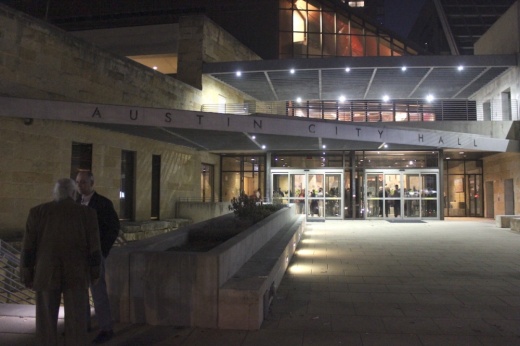City leadership have pointed to elevated vacancy rates stretching back years, in part thanks to the competitive local labor market and a jump in overall budgeted positions, as cities across Texas and the country contend with similar challenges. The city has taken on multiple workforce studies, pay adjustments and other internal initiatives to combat a worker shortage that reached nearly 2,400 employees—almost 16% of Austin’s budgeted positions—by May.
City Manager Spencer Cronk highlighted the city’s staffing shortage as a priority he hoped to address in his city budget for fiscal year 2022-23 with citywide pay increases and one-time stipends for all employees.
The issue rose to the top of City Council’s deliberations over the budget last year as well. Officials eventually voted to increase the city’s minimum wage from $15 to $20 per hour after years of stagnation, upping Cronk’s original proposal to hike the living wage to $18 per hour. Travis County Commissioners Court followed suit, raising the county's minimum wage from $15 to $20 per hour in late August.
Several City Council members also expressed interest in seeing wage increases continue in 2023 and beyond to match the cost of living in Austin, which they said could help limit turnover.
So far, the city and county say the pay increases appear to be a factor spurring new hires. City spokesperson Andy Tate said applications for open city positions jumped 43.67% between September and October, when the new wage went into effect.
Tate said in January staffing in public safety departments and the 911 call center is gradually being replenished, and city vacancies overall are "trending in the right direction." Still, vacancies remained high heading into the new year. The city said its overall vacancy rate remained above 16% in early December.
“Elevated vacancy rates are not unique to the city of Austin, or even to the Central Texas labor market. But addressing staffing challenges will remain a priority for city leadership in 2023,” he said.
In January, Travis County had 154 job postings compared to 5,000 full-time employees, according to Hector Nieto, Travis County public information officer. He said the vacancy rate improved following the minimum wage hikes.
Despite wage increases, the Travis County Sheriff's Office is also still seeing vacancies into 2023. As of Jan. 1, there is a 32% vacancy rate for correctional officers, an 18% vacancy rate for law enforcement deputies, a 29% vacancy rate for medical employees and a 50% vacancy rate for dispatchers.
Despite those levels, Kristen Dark, senior public information officer for the Travis County Sheriff's Office, said marketing and recruiting efforts are going well, and there are over 100 candidates either onboarding, in final interviews or in training.






